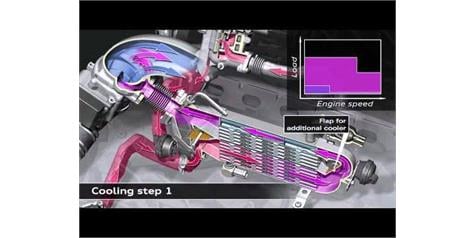

**Issues Resolved by an EGR Delete**
The Exhaust Gas Recirculation (EGR) system is an essential element in contemporary internal combustion engines, aimed at minimizing nitrogen oxide (NOx) emissions by redirecting a portion of the engine’s exhaust gases back into the engine cylinders. Although the EGR system is significant for fulfilling environmental standards, some vehicle proprietors choose to perform an EGR delete, which entails the removal or bypassing of the EGR system. This alteration can resolve numerous concerns, especially in diesel engines, though it carries its own considerations.
1. **Enhanced Engine Performance:**
One of the main motivations for executing an EGR delete is to improve engine performance. The EGR system can reintroduce exhaust gases into the combustion chamber, potentially diminishing the engine’s efficiency. By eliminating the EGR, the engine can draw in a greater amount of fresh air, which may enhance combustion efficiency and boost power output.
2. **Improved Fuel Economy:**
With the EGR system eliminated, the engine might function more effectively, resulting in enhanced fuel economy. The lack of recirculated exhaust gases can facilitate a more thorough combustion process, leading to reduced fuel consumption and possibly decreasing operating costs over time.
3. **Minimized Engine Deposits:**
The EGR system can lead to the accumulation of carbon deposits in the intake manifold and other engine parts. These deposits might hinder airflow and impact engine performance. An EGR delete can assist in preventing such deposits from forming, keeping the engine internals cleaner and decreasing the need for frequent maintenance.
4. **Lower Maintenance Expenses:**
EGR systems can be susceptible to failure and necessitate regular upkeep to operate properly. Components like EGR valves and coolers can become clogged or fail, resulting in expensive repairs. By removing the EGR system, vehicle owners may reduce the chances of these problems and likely save on maintenance costs.
5. **Reduced Engine Temperature:**
The recirculation of exhaust gases can elevate the engine’s operating temperature, potentially leading to overheating problems. An EGR delete can help decrease engine temperatures by permitting more fresh air into the combustion chamber, which can be advantageous in averting heat-related engine damage.
6. **Streamlined Engine Management:**
The removal of the EGR system can streamline the engine’s management system by removing the necessity for sensors and controls related to EGR operation. This simplification can make troubleshooting and fixing engine issues easier.
While an EGR delete can remedy several concerns, it is crucial to acknowledge the potential downsides. The removal of the EGR system can heighten NOx emissions, which may not adhere to environmental regulations and could incur legal repercussions. Furthermore, an EGR delete might void warranties and impact resale value. Vehicle owners must carefully consider the advantages against the possible risks and legal consequences before undertaking an EGR delete.






